Former Head Of Iran’s State TV Condemns Killing Of Protesters
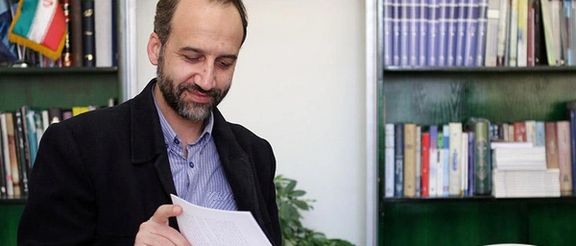
The former chief of Iranian state Radio and TV has condemned the killing of protesters by the regime saying those who order deadly violence are “murderers”.

The former chief of Iranian state Radio and TV has condemned the killing of protesters by the regime saying those who order deadly violence are “murderers”.
Mohammad Sarafraz in a tweet on Thursday said, “government officials who kill unarmed people and defenseless women and children and the commanders who give orders are murderers.”
“They will be punished for their acts both in this world and in the court of divine justice,” underlined Sarafraz.
His comments show that there are some regime figures who are upset with Supreme Leader’s policies. As commander in chief of armed forces and in control of intelligence services, Khamenei is seen as responsible for the deaths of more than 400 people since September.
There has been no reaction from officials to Sarazfraz’s comments, but the regime has dealt with iron fist against any outspoken figure who expressed support for the protest movement so far.
This is not the first time Sarafraz criticizes the regime. As an experienced media executive, he had subtly and indirectly blamed Khamenei for systemic corruption and decay within the Islamic Republic.
Earlier, he wrote in his memoires extensively about the role of Ali Khamenei’s son Mojtaba and his involvement in financial corruption.
In November 2014, Sarafraz was appointed as the new chief of IRIB, however, he resigned from his post due to illness in May 2016.
Later in an interview with Shargh daily, Sarafraz said the “interference and meddling of intelligence organizations in IRIB’s internal affairs” was one of the reasons he abruptly resigned just 18 months into a five-year term.

In response to calls for strikes, merchants and storekeepers in dozens of Iranian cities closed their shops and workers stopped work at some factories.
Reports say business owners in the cities of Mashhad, Semirom, Naqadeh, and tens of Kurdish cities joined the nationwide strikes on Thursday.
The government also took another provocative step by arresting a popular and outspoken football player.
The Free Workers Union announced Thursday that workers at the Nirou Moharrakeh company in Qazvin west of Tehran have gone on strike in protest to inattention to their problems. The company is one of the major motorcycle manufacturer in Iran.
Unions of construction workers of Kordestan province also issued a statement, demanding the trial of the perpetrators and those responsible for the killing of the protesting workers.
In the past days, the youth of Tehran Neighborhoods and the Cooperation Center of Iranian Kurdistan's Political Parties called on political entities, civil activists and people from all walks of life to organize a general strike on Thursday, November 24, to show support for the Kurdish people.
Meanwhile, The Iranian Writers Association has condemned the “organized suppression of the defenseless people of Kurdish cities," saying that it reminds one of the days the cities were attacked during Iran-Iraq war.
“The organized suppression of the defenseless people of Kurdish cities is the continuation of years of systematic repression and torture… by a regime that … arrests and executes its opponents,” said the Association in a statement.
In the meantime, the board members of the Association of Playwrights resigned in protest to suppression and censorship.
Iranian state media also reported that Voria Ghafouri, popular soccer player who has been supporting nationwide protests, was arrested.
Borna New Agency, which is affiliated with Iran’s Sports and Youth Ministry, said Thursday that Ghafouri has been detained for “insulting & sabotaging” Islamic Republic’s football team and “propaganda against the regime!”
The media did not provide details about the insult by Voria Ghafouri, but it appears his story about the national football team with the caption "Shameless, Shameless" on his Instagram page was taken as an insult.
Ghafouri, who is of Kurdish origin, has lashed out at the Islamic Republic for killing people in recent weeks, demanding an end to the massacre of Kurds by the security forces.
The authoritarian regime has so far arrested several football players on charges of acting against national security, including Parviz Broumand, Hossein Mahini and Hamidreza Ali Asgari. Some others, including Yahya Golmohammadi, head coach of Persepolis football team, have also been summoned for supporting the protests.
Frequent statement by legendary football players Ali Karimi and Ali Daie against the Islamic Republic and in support of protests have also angered the clerical rulers, to the extent that the judiciary announced Iw was prosecuting Ali Karimi.
In addition to athletes. Dozens of writers, journalists and famous cinema personalities have also been detained.
Ali Khamenei, the Supreme Leader of the Islamic Republic, earlier claimed that the stance taken by some athletes and artists regarding the protest movement is of no importance.

The UN Human Rights Council met Thursday to discuss the deteriorating situation in the Islamic Republic of Iran, especially with respect to women and children.
During the opening remarks, UN High Commissioner for Human Rights Volker Turk provided a review of what has been happening since mid-September, when Mahsa (Jina) Amini was killed in custody of the country’s ‘morality or hijab police’, igniting a nationwide uprising against the regime.
The 35th special session of the Human Rights Council was held following an official request submitted on November 11 by Germany and Iceland, as well as the support by over 40 other states.
Turk decried the killing of protesters and lack of accountability for the perpetrators of atrocities against the people as part of the crackdown on dissent. He also expressed concerns over "unnecessary and disproportionate" use of force against protesters and the high number of arrests as well as the death sentences handed to protesters. "The security forces... have used live ammunition, birdshot and other metal pellets, tear gas and batons," he said.
"The old methods and the fortress mentality of those who wield power simply don't work. In fact, they only aggravate the situation. We are now in a full-fledged human rights crisis," the High Commissioner of Human Rights said, adding, "The unnecessary and disproportionate use of force must come to an end. I urge the government and those in power to listen.”
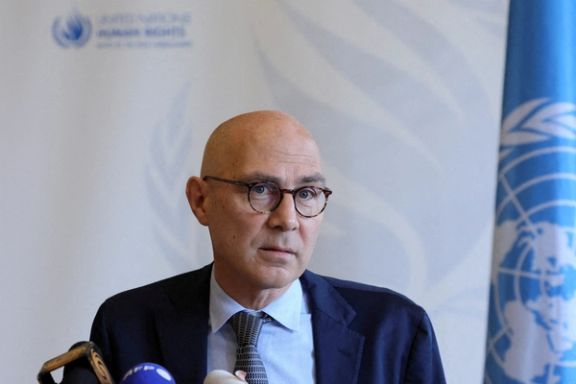
He also criticized the Islamic Republic for seeking to delegitimize the protesters and label them as agents of enemies and foreign states, adding that "That's a convenient narrative. As we have seen throughout history, it's the typical narrative of tyranny."
Javaid Rehman, the Special Rapporteur on the human rights situation in Iran, was next to take the floor and speak about the grim situation. "Structural impunity has fueled widespread patterns of unlawful killings, enforced disappearance, torture and other human rights violations in Iran," he said, urging the council to "establish an independent investigative mechanism on Iran."
“Both president and head of judiciary have emphasized the need to act violently without any leniency to protesters," he emphasized.
Rehman urged Iranian authorities “to stop using the death penalty as a tool for political oppression and release peaceful protesters. We have received reports of torture including sexual abuse. Victims' families face harassment and intimidation," he said, adding that "The victims' families are forced to make false statements, under duress, stating that their children committed suicide. Iranian authorities spread false statements about deaths in custody and protester deaths. They fabricate false scenarios."
Tehran's representative called the debate disgraceful and appalling, before talking about the human rights situation in other countries such as women in Yemen, Palestine and even the indigenous people of Canada. She then continued with a list of statistics about the number of women in different professions in Iran such as judges and sport coaches, something that seems untrue to the Iranian people on social media.
Member states in the Council as well as observers that spoke later in the session condemned the regime for its repression and called for a moratorium on the death penalty. They decried the violence and the restrictions on Internet access for the people.
Tehran’s allies such as Venezuela, Cuba, North Korea and China, sided with the Islamic Republic and expressed their opposition to the session or any resolution against the Islamic Republic.
German Foreign Minister Annalena Baerbock said, “We are now proposing an independent and impartial UN mechanism to be established to investigate these human rights violations so that those responsible can be held accountable. Because impunity prevents justice. Justice for sisters. Justice for sons. Justice for mothers.”
She then referred to the International Covenant on Civil and Political Rights, to which Iran is a party, mentioning Article 19, the right to hold opinion without interference; Article 21, the right of peaceful assembly, Article 2, respect to all peoples’ rights without distinction of any kind such as gender.”
Council members are set to adopt a resolution aimed at holding the Islamic Republic accountable, which has been lobbying against the motion and sent a delegation to Geneva earlier this month to urge countries to vote against the resolution.
In another global move over Iran’s denial of women's rights and crackdown on protests, calls on the UN to expel the Islamic Republic from the UN Commission on the Status of Women are also getting stronger with Canada, New Zealand, Netherlands and the United States behind the push. UN Watch, an independent non-governmental human rights group based in Geneva, has drafted a resolution for the 54-nation UN Economic Social Council (ECOSOC) to remove Iran.
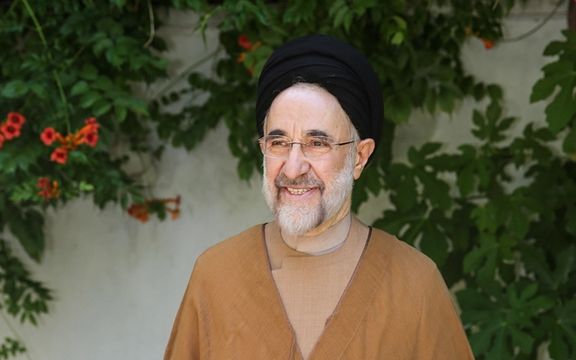
Sources in Tehran say Iran's ruling hardliners faced with losing it all are beseeching once popular reformists they purged from power to help save the regime.
In a commentary entitled “Good But Not Enough”, the Revolutionary Guards’ Sobh-e Sadegh weekly has also adopted a surprisingly mild and somehow positive tone in discussing former reformist President Mohammad Khatami’s recent remarks about the protest movement.
The weekly is published by the political bureau of the Revolutionary Guards (IRGC) and its content is meant to set the standard for the guards and the hardliner political establishment in current affairs.
“Khatami who has a special status among reformists can prepare the grounds for dialogue [between protesters and the government] through uniting all across the reformist spectrum and reinforcing the divide with the enemies of the Iranian people,” Sobh-e Sadegh wrote.
Khatami said in a speech last week that regime change was “neither possible, nor desirable” while also warning the hardliner establishment over continuing the status quo which he said would only deepen the prospects of “societal collapse”. He proposed reforms in the system as the “least costly and most useful” way out of the current quagmire the regime has gotten itself into.
“The first step is to not only acknowledging [people’s] right to protest, but also to welcome it,” he said while criticizing the authorities’ characterization of any protest action as “rioting” to justify harsh suppression.
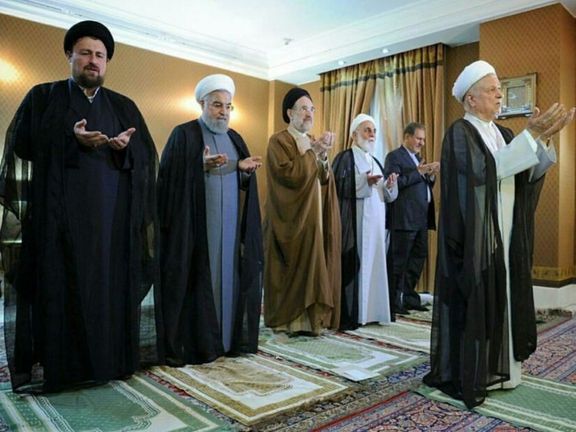
The weekly admitting that the former president is “still the most pre-eminent and popular figure among reformists” sounds like praise, while in recent past hardliners labeled him as “one of the leaders of the [2009] sedition” and made it clear there was no room for him, and those like him, in the country’s power structure.
Informed sources in Iran told Iran International over two weeks ago that authorities had approached some reformist and moderate figures to beseech their help in quelling the unrest that has engulfed the country, but to no avail.
Strongly worded slogans against Supreme Leader Ali Khamenei, and slogans such as, “This is not a protest, it’s a revolution!” and “This is the last message, our aim is [toppling] the system!” chanted by protesters leave no doubt that they will not be satisfied with anything other than regime change.
Accordingly, not even Khatami, whose popularity once surpassed any other Iranian official including the Supreme Leader by a mile, has significantly lost his clout among protesters who view him as ultimately a man of the system and irrelevant in the current circumstances.
The Wall Street Journal also said in an article Wednesday that the secretary of the Supreme National Security Council (SNSC) Ali Shamkhani recently approached the families of the founder of the Islamic Republic, Ruhollah Khomeini, and the former moderate president Akbar Hashemi-Rafsanjani in a bid to use their influence to calm the unrest. People close to the two families told the WSJ that both families declined to cooperate.
Shamkhani, a Khamenei loyalist, has kept a very low profile since protests began over two months ago. Ultra-hardliners of the Paydari Front blame Shamkhani for not crushing the protests in the bud and even accuse him of complicity with Khatami under whom he served as defense minister in between 1997 and 2005.
Khamenei’s hardliner devotees made sure long ago that members of both families were barred from any positions of power and even allowed vigilantes to freely attack and insult Khomeini’s grandson Hassan in public and jail two of Hashemi-Rafsanjani’s children, the outspoken daughter Faezeh and son Mehdi who is still serving a prison sentence on security-related and corruption charges.
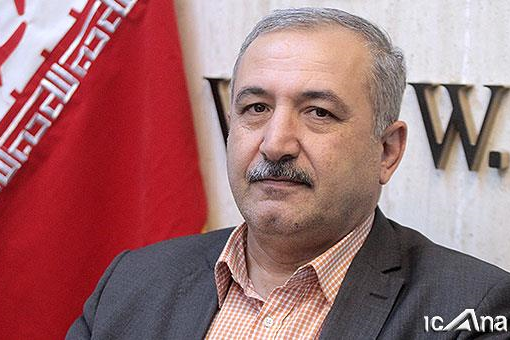
An lawmaker in Tehran says the Judiciary has indicted him for his condemnation of killing of Kurdish people in western Iran by security forces.
Jalal Mahmoudezadeh, who is representing the people of Mahabad in the Iranian parliament said Wednesday in a tweet that he has been summoned many times over the past few days but did not provide any details which organization has summoned him.
“Instead of following up on the rights of the protesting people and the families of the victims of Mahabad and Kurdistan cities, the judiciary has filed a lawsuit against me as a supporter of the same bereaved people!!!” added Mahmoudzadeh.
However, he vowed “I will stand by my honorable people in any situation.”
Following the killing of people in Mahabad by the regime forces, Mahmoudzadeh November 19 strongly criticized the crackdown on people in Kurdish cities saying that the protesters must be heard.
In an interview he said most of the people are unemployed in Kurdish cities and they are angry, so the security forces must stop harming civilians.
He added the people are being killed by live rounds, but instead of identifying those who have killed people, “an organization has filed a lawsuit against me.”
Since last week, the Islamic Republic has intensified its repression of Kurdish-majority cities and towns in western provinces of the country following reports that parts of some small towns have fallen into the people’s hands. The majority of Iran's 10 million Kurds live in the western parts of the country.
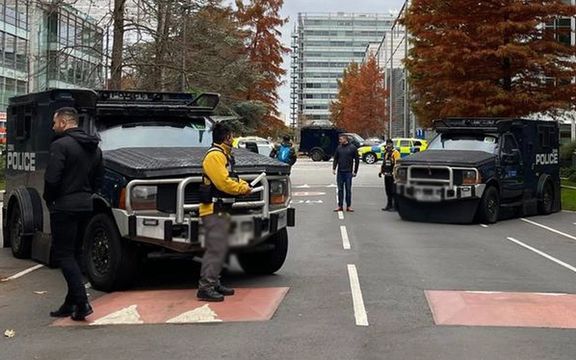
The Israeli Mossad alerted UK authorities about an impending Iranian plot to carry out terrorist attacks against Iran International’s journalists based in London.
Israel’s Channel 11 reported Monday, November 21, that Mossad informed Britain’s spy agency about the threats facing two journalists working for the London-based channel.
According to further information obtained by Iran International, threats against its journalists, revealed by the Metropolitan Police earlier this month, came from the same team that sought to target Israel’s former consul general in Istanbul, Yosef Levi Sfari, who was rescued by authorities and sent back to Israel.
In June, Israeli and Turkish media reported that a terror cell sent to Turkey by the Islamic Republic was busted, and its eight members who had entered the country with fake Tajik and Italian passports were arrested.
The agents were staying at the same hotel in which Levi Sfari and his partner Roni Goldberg were staying for their vacation, with reports alleging that their other targets were Israeli tourists. "The Iranian squad was caught red-handed at the last minute," the reports added. According to Turkey's National Intelligence Organization (MIT), the eight were arrested in raids on three houses in Istanbul’s Beyoglu district.
The mastermind of the plot was Rouhollah Bazghandi, the deputy head of IRGC’s counterintelligence (Unit 1500). A former senior IRGC official had earlier told Iran International that by using amateur agents to carry out the attacks against Israeli targets in Istanbul, Bazghandi dealt a heavy blow to IRGC Intelligence Organization. He was also in charge of thwarting plots against Iran's security officials inside Iran; however, his involvement in the Turkey plot, and apparently his absence, among other reasons, turned Iran into a safe haven for Israeli Mossad agents who launched several sabotage operations and assassinations.
An intelligence source told Iran International that Bazghandi is the man who was in charge of the failed attack against its journalists.
London’s Metropolitan Police formally notified two of our journalists early in November of “imminent, credible and significant risk” to their lives and those of their families. Other staff members were informed directly by the police of separate threats.
The Scotland Yard has also placed armed police forces outside Iran International’s headquarters since mid-November, following further public threats by the Islamic Republic’s authorities – such as the intelligence minister and top Revolutionary Guard’s commanders against the channel.
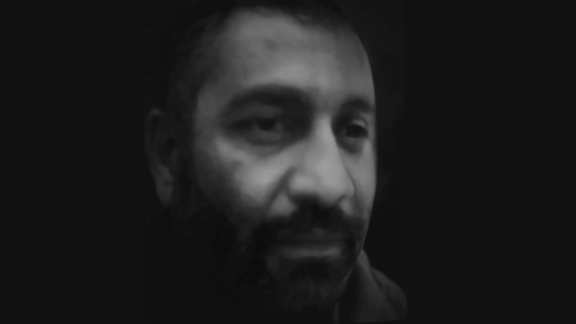
Britain’s MI5 said on November 16 that UK authorities have discovered at least 10 “potential threats” since January to “kidnap or even kill British or UK-based individuals perceived as enemies of the regime.”
Faced with nationwide antigovernment protests since mid-September, the Islamic Republic has blamed foreign-based Persian broadcasters such as BBC Persian and Iran International of “fomenting unrest”, while all media in the country are under tight government control and present protesters as “rioters” and “terrorists”.
Iran’s Intelligence Minister Esmail Khatib on November 9 said the Islamic Republic regards Iran International as “a terrorist organization,” adding that its workers and anyone affiliated with the channel will be pursued by the Ministry of Intelligence.
Iran has a long record of targeting dissidents and independent journalists who found refuge in other countries. In the latest example of terror operations abroad, Iranian intelligence abducted dissident journalist Ruhollah Zam who was visiting Iraq in 2019 and took him back to Iran where he was executed in 2020.